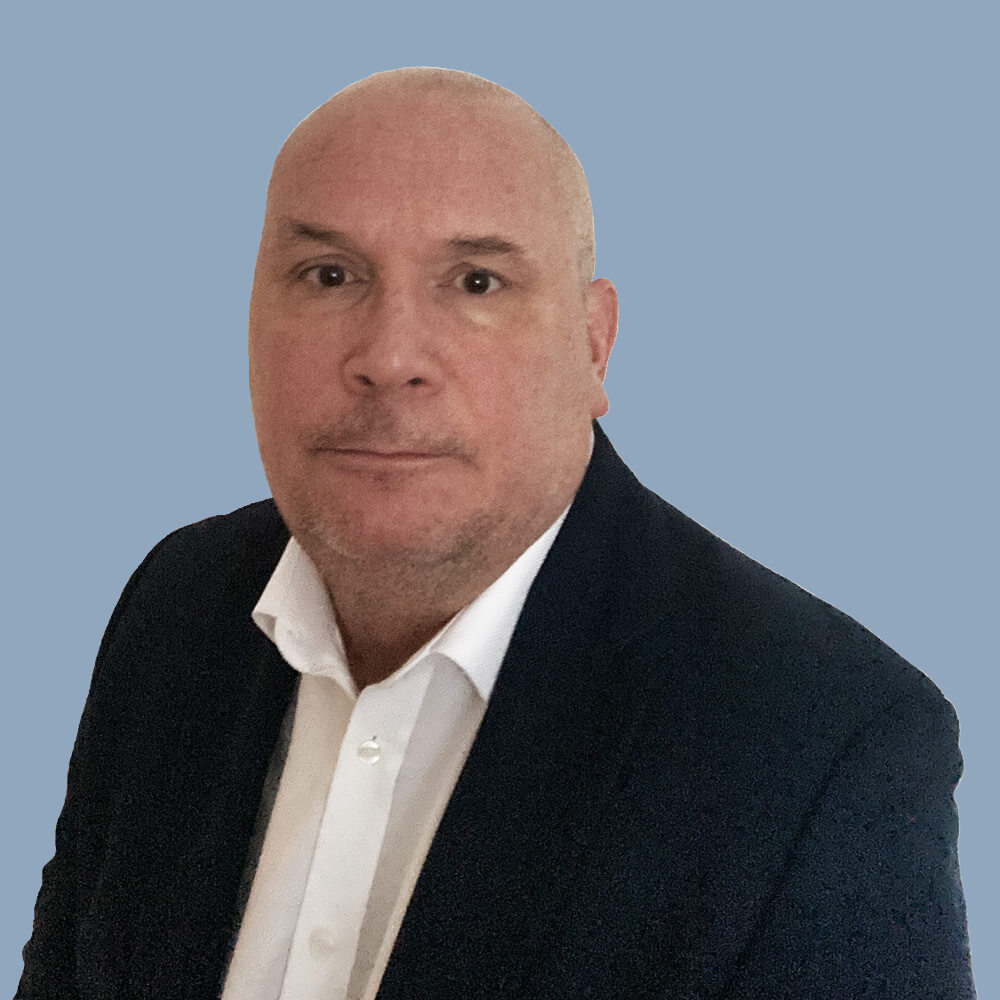
As highlighted in the Lloyd’s Market Association’s (LMA) recent report, The Growth of Enhanced Underwriting in the Lloyd’s Market: The New Normal?, automation is already playing a significant role in reshaping underwriting practices, with an estimated $5 billion in premiums flowing through enhanced underwriting models. Insurers are now leveraging digital tools not just to streamline operational processes but also to enhance underwriting decisions and portfolio strategies.
Pro Global is increasingly advising leading re/insurers on automation as a holistic tool across their processes. The LMA report categorises these advancements under the umbrella of Enhanced Underwriting, which is divided into four models:
The LMA report underscores that enhanced underwriting is expected to grow exponentially, particularly in Augmented Underwriting, where adoption is projected to rise by 60% annually. This trend is driven by insurers’ need to optimise risk selection and deploy capital more efficiently.
The applications of automation go far beyond London Market processes, extending into areas such as underwriting, claims, and operational efficiency. Clients we have worked with have reported significant increases in efficiency, time, and cost savings by applying automation to business tasks.
A prime example is global risk exchange Vitesse, which saved nearly a day per month by combining data validation, robotic process automation (RPA), and API integration. The firm’s expansion into the USA, Canada, and Europe resulted in increased accounts and complexities, necessitating automation. Pro Global developed a tailored RPA bot to automate the journal creation process, cutting processing time by 45% and significantly reducing errors.
To learn more about how Pro Global’s Digital Services can help your organisation implement cutting-edge automation solutions, visit our Digital Services page

Name: Kristy Lovegrove
Job title: Group Head of Technology
To speak to the Pro Global team please feel free to reach out to us at:

To contact our PR team directly please use the link below
The MGA sector is set for further notable expansion and innovation in 2025, with technology driving transformation across multiple dimensions. Expectations across the industry reflect increased demand for enhanced digital solutions that streamline operations, improve and expand distribution into new and niche sectors, and strengthen end-to-end underwriting and claims management. As a service provider and incubator for emerging and growth-stage MGAs, Pro MGA Global Solutions supports multiple MGA propositions launching and growing in the market, and there is substantial momentum around insurtech heading into 2025.
The ecosystem for insurtech-driven MGAs is expanding globally, with the U.S., Europe, Latin America and the Middle East at the forefront of this growth. The sector’s agility and entrepreneurial spirit make it a natural testing ground for new technologies globally, with MGAs functioning as innovation hubs where insurtech solutions can be implemented and refined.
MGAs are critical players in testing and validating new technologies, from AI and automation to customer-centric platforms. Lessons learned in the MGA space often cascade to the broader insurance industry, where MGAs serve as models for technology-driven efficiency and responsiveness. By deploying insurtech innovations, MGAs provide valuable insights and proven practices that other insurance entities can adopt to enhance their own offerings.

Enhanced Underwriting
The evolution of specialty risks at Lloyd’s has been significantly influenced by the adoption of Enhanced Underwriting practices, as highlighted in the Lloyd’s Market Association (LMA) report, The Growth of Enhanced Underwriting in the Lloyd’s Market: The New Normal? This comprehensive analysis sheds light on how digital tools, advanced data analytics, algorithmic underwriting and other technology-driven strategies are not only reshaping underwriting but also enabling the Lloyd’s market to address increasingly complex specialty risks.
The report underscores the shift toward more granular, data-informed underwriting processes, which are essential for managing emerging risks such as cyber threats, climate-related exposures, and geopolitical volatility. Enhanced Underwriting is far from full maturity, as the study notes – reflected in the estimated USD 5 billion in current premiums passing through Enhanced Underwriting models, accounting for c.7% of the USD 69.4bn premium written in Lloyd’s (2023).
However, the report flags that premium only tells a part of the story. “Through interviews and a market survey, we have identified at least 40 Enhanced Underwriting models being developed by carriers, MGAs and brokers, with many others considering build outs in the next 2 to 3 years.”
Certainly from an MGA incubator and broker facilitation perspective, we can see key benefits for brokers and insurers, such as simplifying placements, enhancing governance, and aligning capital risk more effectively.
In addition, the fresh thinking around Enhanced Underwriting, data standardisation and market interoperability helps strengthen compliance oversight and address concerns regarding regulatory inconsistencies.
Embedded Insurance Gains Scope and Relevance
Meanwhile, demand for embedded insurance is rising as non-insurance brands—such as retailers, peer-to-peer lending platforms, and automotive manufacturers—integrate insurance options at the point of sale, making coverage more accessible and convenient. The embedded insurance market is expected to exceed $70 billion in GWP by 2025, with MGAs poised to benefit and drive much of this growth.
In terms of tech deployment, low-code platforms are particularly appealing to MGAs in this space, as they enable quick, flexible product development and seamless integration with third-party systems. These platforms allow MGAs to respond to sector-specific demands with tailored, user-friendly products that align with consumer expectations for simplicity and relevance. Pro MGA Global Solutions anticipates that MGAs will play a pivotal role in expanding embedded insurance going forward.
AI and Automation Transforming the MGA Landscape
Pro MGA Global Solutions is seeing a growing number of MGAs embedding AI into their strategies to enhance product development, risk assessment, and back-office efficiencies. AI tools are increasingly applied in underwriting, pricing, and fraud detection, significantly boosting agility.
At the same time, automation remains a cornerstone of MGA development, offering end-to-end efficiencies across the insurance lifecycle—from underwriting and policy management to customer service and claims processing. As MGAs scale, automation provides a foundation for operational efficiency, allowing lean teams to handle increased business volumes without compromising service quality. With market expectations pointing to streamlined processes and rapid scalability, MGAs are deploying automation solutions that allow them to compete effectively by reducing manual work and repetitive tasks.
We forecast that process automation will play an increasingly significant role in MGA business plans in 2025, supporting sustainable expansion while reducing overhead.
The Vital Role of Talent in a Tech-Driven MGA Landscape
Talent remains a key driver of MGA success. As MGAs evolve, they require diverse expertise, not only in underwriting but also in technology development and digital strategy. Attracting and retaining skilled tech talent is essential to building scalable operations and optimising digital solutions. The MGA market is increasingly recognising the value of tech-oriented teams capable of leveraging AI, automation, and data analytics to unlock new growth opportunities.
In 2025, the MGA sector will likely see heightened competition for tech and coding talent, with a focus on roles that support digital transformation and innovation. Pro MGA Global Solutions is committed to fostering this talent, offering MGAs the resources and support to build teams capable of driving industry-leading results.
Keeping pace with rapid advancements
As the insurance industry seeks to keep pace with rapid technological advancements, MGAs stand out as the ideal proving ground for the latest in insurtech. Their flexible, agile business models enable them to quickly trial and adopt new tools, from AI-driven risk assessment and fraud detection to automated claims processing and embedded insurance offerings. By testing and refining these technologies in real-time, MGAs offer a low-risk route for innovation for the sector’s capacity providers to add capital backers, often yielding results that shape broader industry practices.
The test-and-learn approach MGAs bring allows them to bridge technology with real-world applications, driving insights that insurers can use to scale up solutions more confidently. In this way, MGAs do not just contribute to operational improvements but actively set the pace for a more responsive, customer-centred insurance ecosystem. As insurtech grows, MGAs will continue to play a critical role as accelerators, bringing advanced technology from concept to trusted industry standard. While initiatives like Enhanced Underwriting and full end-to-end automation are at the beginning of their journeys, they’re only heading one way for the global specialty insurance sector. Going forward, the intersection of compliance and algorithmic underwriting represents both a challenge and an opportunity for insurers in the face of regulatory evolution and technological transformation, but it’s an exciting space.
To speak to the Pro Global team please feel free to reach out to us at:

To contact our PR team directly please use the link below
This article is shared with the kind permission of Insurance Edge.
———-
According to Statista, the amount of data created, captured, copied, and consumed globally is projected to reach 180 zettabytes by 2025. This is an increase of about 50% from 2023. For those that don’t know off the top of their heads, a zettabyte is equal to one sextillion bytes, or 1,000,000,000,000,000,000,000 bytes.

Statistia’s staggering figure underscores the importance of data management across industries, particularly in re/insurance. In the re/insurance sector, data is not just a byproduct of business processes – it is the foundation upon which risk assessments, underwriting decisions, and compliance are built.
So it follows that for our sector, the rapidly evolving global insurance market, the sheer volume of data generated and processed is also increasing almost exponentially. Yet, with such a massive influx of information, the quality of data often becomes compromised. Inaccurate, non-standardised or incomplete data can set off a chain reaction of errors, undermining risk models, misguiding exposure management, and leading to compliance breaches.
As we approach 2025, re/insurers are increasingly investing in robust data cleansing processes to mitigate these risks. In this editorial, we will explore the latest trends in data cleansing, the impact of poor data on exposure management, and the tools and techniques reshaping the insurance landscape.
The Impact of Poor Data on Exposure Management and Risk Models
At the core of re/insurance operations is exposure management—the process of evaluating and pricing risk across portfolios. This process relies on accurate data, such as property valuations, geographical information, and historical loss data. Exposure models, such as catastrophe models for natural disasters, are fueled by this data, and the quality of the input directly impacts the accuracy of the output.
However, exposure schedules or Statements of Value (SOVs) often come riddled with errors—outdated property valuations, missing fields, or inconsistencies across datasets. These data discrepancies not only skew the models but can also lead to mispricing of risk, which may result in significant financial loss or, worse, inability to pay claims accurately in the event of a disaster.
Inaccurate data also hampers decision-making. For instance, a re/insurer may overestimate their exposure in a particular region, leading to unnecessary capital allocations or reinsurance purchases. Conversely, underestimating exposure may leave the company vulnerable to catastrophic losses. The cascading effect of poor data is clear, as it touches every part of the insurance value chain—from underwriting to claims handling.
Compliance Risks Tied to Data Quality
Beyond the financial implications, incorrect or unverified data also brings a host of compliance issues. The insurance industry is one of the most heavily regulated sectors, and regulatory bodies are scrutinising data quality and governance more closely than ever. Regulators demand that insurers have robust systems in place for managing and verifying their data, particularly in light of increased transparency requirements and evolving risk landscapes.
Data sharing within the insurance chain also poses risks. Re/insurers often work with multiple partners – brokers, agents, and reinsurers – and need to share exposure data to ensure that all parties are aligned on risk levels. If one party is operating on incomplete or incorrect data, the entire insurance chain can become compromised, leading to disputes, delays in claim settlements, or breaches in service-level agreements (SLAs). Insurers must, therefore, ensure that their data is clean, accurate, and compliant before sharing it with partners.
Garbage in = garbage out
Though nearly 20 years old, Hurricane Katrina is the storm that really focused the market’s attention on loss modelling, data quality and the impact of bad or incomplete data. In the exposure management world this event was a game changer.
After the event, it became clear that a number of locations were coded as concrete ‘on land’ Casino’s whereas actually they were floating Casino’s built on barges, which were far more susceptible to storm damage. Incorrect location data translated to a poor understanding of where exactly levees were located and an underestimation of the ultimate flood risks.
Incorrect location data can put risks into or outside of hazard zones leading to an incorrect assessment of the risk. To increase efficiency around geocoding some Insurers opt to model locations based on ZIP codes over street addresses, however this has proven to increase the amount of inaccurate loss estimations.
Trends in Data Cleansing
The process of data cleansing involves cleaning, validating, and standardising data, particularly exposure schedules, to ensure that models run on reliable information. In recent years, technological advancements have transformed how this cleansing process is performed.
One of the biggest trends is the adoption of augmented data platforms that automate much of the data cleansing workload. These platforms use machine learning and AI to scan vast datasets, flag inconsistencies, and apply fixes at scale. The advantages are clear: speed, accuracy, and consistency. Augmented tools can cleanse large volumes of data more efficiently than it would take human analysts while reducing the risk of manual errors.
Techniques such as anomaly detection and pattern recognition are also becoming commonplace. These allow insurers to identify outliers in datasets – whether it’s an abnormally low property valuation or a misclassified exposure – and correct them before they cause issues downstream. Data enrichment, another technique gaining traction, involves enhancing raw data with third-party information (such as location intelligence) to fill in gaps and improve overall data quality.
Despite these advancements in the automation of data cleansing functions, human oversight remains vital. While AI-driven tools are excellent at automating routine tasks, they still require human input to set parameters, validate results, and make judgement calls on more complex data issues. Additionally, insurers must balance the need for rapid data cleansing with the risk of over-relying on automation. There’s always the risk that in an effort to streamline processes, insurers may inadvertently bypass critical validation steps, leaving errors undetected.
The Future of Data Cleansing in Re/Insurance
Looking ahead, the role of data cleansing in the re/insurance sector is only set to grow. As insurers continue to face pressure to innovate and reduce operational costs, we can expect to see even greater reliance on automated data platforms. Advanced AI systems are likely to evolve, allowing for real-time data cleansing that seamlessly integrates into exposure models. This will dramatically reduce the time it takes to underwrite policies, giving companies a competitive edge in the fast-paced market.
Moreover, data governance and compliance will continue to be a key driver. Regulatory bodies are unlikely to ease their demands on data quality; in fact, with the ever-expanding scope of environmental, social, and governance (ESG) considerations, insurers will need to ensure that their data is not only clean but also aligned with broader compliance and reporting standards.
In 2025, the re/insurance sector will likely see a convergence of data cleansing, compliance, and exposure management. Clean, validated, and standardised data will become the linchpin of the re/insurance industry, and those who fall behind risk not only financial loss but also regulatory and reputational consequences.
Insurers must ensure they have strong robust data validation, data cleansing and data enhancement, which are key to accurate risk assessment. Technology works best when monitored and controlled by a team with subject matter expertise and processes established by experience.
For those insured, providing as much data as possible around locations, occupancies, constructions and additional modifiers is also key. The more current and accurate the data, the more accurate the loss estimate and the premium.
Name: James Hunt
Job title: Account and Operations Manager
To speak to the Pro Global team please feel free to reach out to us at:

To contact our PR team directly please use the link below
This article is shared with the kind permission by the publication Carrier Management
—————
Louisiana’s newly enacted House Bill 672 has introduced a wave of regulatory changes that specifically target managing general agents (MGAs) operating within the state. These changes, which took effect in August 2024, aim to bring enhanced scrutiny and accountability to the intermediaries playing a growing role in the insurance ecosystem.

The bill’s core provisions impose more stringent oversight on MGAs — entities that historically operated with less regulatory interference compared to insurers. While Louisiana is not the first state to impose tighter regulations on these intermediaries, House Bill 672 stands out due to its rigorous reporting obligations, financial thresholds and restrictions on the movement of key personnel in cases of insurer insolvencies.
For MGAs and insurers both inside and outside of Louisiana, these new regulations signal a broader shift in the regulatory landscape, and the implications extend beyond state borders.
Key Provisions of House Bill 672
One of the hallmark provisions of House Bill 672 is its increased scrutiny on MGA financial reporting. Significantly, MGAs are now obligated to notify the Louisiana Department of Insurance (LDI) within 30 days if any balances due to an insurer exceed $1 million or 10 percent of the insurer’s policyholder surplus for more than 90 days. Similarly, and of unique significance, MGAs must notify the regulator if balances due from property and casualty agents or MGAs exceed $500,000 for more than 60 days. There are also notification requirements if claim settlement authority is withdrawn from an MGA.
In addition, MGAs must now submit quarterly reports to their carrier partners. These reports are not merely administrative but must detail comprehensive financial metrics, including written, earned and unearned premiums, losses paid and outstanding, incurred but not reported (IBNR) losses, and management fees. MGAs must submit these reports to the LDI upon request, ensuring that both insurers and regulators maintain a close watch on the financial health of these entities.
Notably, House Bill 672 does not merely focus on financial solvency. The bill also seeks to prevent executives of failed insurers from quickly re-entering the market via MGAs. It prohibits any individual who held an executive position at an insurer that went bankrupt within the previous two years from serving in an executive capacity at an MGA. These restrictions are intended to create a buffer period between failures and fresh opportunities, limiting the risk of individuals tied to previous insolvencies from influencing new entities. However, this restriction can be overridden by the insurance commissioner if it is determined that the executive did not contribute to the insurer’s insolvency.
Comparing Louisiana’s Regulations to Other States
While other states in the U.S. have implemented regulatory frameworks targeting MGAs, Louisiana’s approach stands out for its detailed financial and reporting requirements. For example, many states impose some level of reporting on MGAs, but Louisiana’s requirement for detailed quarterly reports covering premiums, losses and fees goes beyond the typical annual filings seen in other jurisdictions. The inclusion of IBNR losses is also noteworthy, as it signals the state’s concern about liabilities that may not immediately surface in traditional reporting.
Additionally, the threshold for reporting at the commissioner’s request—5 percent of an insurer’s policyholder surplus or exceeding certain financial limits—is relatively unique. Most states do not explicitly tie MGA reporting obligations to these financial markers, meaning Louisiana’s approach is one of the more proactive in terms of scrutinizing MGAs with substantial market influence or financial risk exposure.
Another important distinction is the personnel restrictions regarding executives from bankrupt insurers. While other states may have similar prohibitions, Louisiana’s focus on a two-year ban, with an option for regulatory override, reflects an intent to balance market discipline with fairness. In contrast, states like New York or California typically enforce broader restrictions without the same level of flexibility in providing exemptions.
What Louisiana’s ‘Data Call’ Means for MGAs and Insurers
One of the most impactful elements of House Bill 672 is the requirement for MGAs to submit what amounts to a data call—a highly detailed report on their financial activities. This goes beyond traditional reporting of premiums and losses. MGAs are expected to provide insights into loss adjustment expenses, incurred but not reported losses, and management fees, making this a more thorough examination of their role in the insurance chain.
The necessity of reporting these additional details introduces a layer of transparency that will likely be burdensome for smaller MGAs or those not accustomed to such granular data tracking. This data call will also give regulators a much more complete picture of the risks posed by MGAs, especially those that handle significant premiums on behalf of insurers.
For MGAs operating on thin margins or with limited back-office capabilities, the costs of compliance—whether in terms of time or financial resources—may prompt them to rethink their operations in Louisiana. But the data call also serves as an early warning system for insurers and regulators, ensuring that entities with significant exposure are flagged before problems escalate.
MGAs Under the Spotlight: A Growing Trend
Louisiana’s new MGA legislation, enacted through House Bill 672 and effective August 1, 2024, marks a significant intensification in regulatory scrutiny that goes beyond the NAIC MGA Model Act. Prompted by recent insolvencies among insurers associated with MGAs—particularly those managing high-risk property catastrophe insurance in Louisiana—the law introduces expanded requirements to bolster oversight and reduce financial risks.
While the bill introduces specific new reporting requirements and personnel restrictions that MGAs will need to navigate, its broader implications point to increased regulatory scrutiny nationwide. Other states may soon follow suit, particularly as MGAs continue to play a larger role in insurance distribution and underwriting.
In aligning with industry trends, this legislation responds to a growing demand for MGA growth, increasing private equity ownership, and heightened scrutiny from agencies like AM Best. Ultimately, House Bill 672 positions Louisiana’s regulatory framework to better address industry risks and preempt insolvency concerns in a rapidly evolving market.
For insurers and MGAs, these new regulations signal the need for stronger compliance infrastructures and a heightened focus on financial transparency, which can be achieved through proactive audits. The industry must adapt to this evolving landscape where regulators are more vigilant, and the margin for error is smaller than ever. As MGAs increasingly serve as key conduits between insurers and policyholders, the stakes for regulatory compliance will only grow.

Name: Robert Sherman
Job title: US Head of Audit & Advisory
To speak to the Pro Global team please feel free to reach out to us at:

To contact our PR team directly please use the link below

London: 31 October, 2024: Pro Global (“Pro”), a leading trusted advisor for the specialist insurance sector, is pleased to announce the enhancement and growth of its Digital Services capabilities, under the leadership of Kristy Lovegrove, Group Head of Technology. This strategic move aligns Pro’s Global Digital Services offering with the increasing demand for automation and technology-driven efficiencies from re/insurers globally.
Kristy’s leadership marks a pivotal step in Pro’s journey towards providing a more cohesive and holistic approach to digital transformation. The expansion follows Pro’s acquisition of Propel Automation in 2023, which has now been fully integrated into Pro’s Digital Services. Combining Propel’s expertise in Robotic Process Automation (RPA) with Pro’s established technology solutions, the company is uniquely positioned to deliver comprehensive digital strategies that provide real-time results for re/insurers.
Pro Global’s strengthened and scaled digital solutions are already being implemented in key regions, including Germany, Latin America, and within Insurance Services, MGA and claims functions. These solutions are tailored to meet each client’s specific needs while remaining grounded in Pro’s core mission: to simplify and optimise re/insurance processes through cutting-edge technology.
Chris Everson, Chief Operating Officer at Pro Global, said:
“Digital transformation initiatives, including London market modernisation, is driving demand for digital services at an unprecedented rate. The re/insurance industry is under immense pressure to reduce costs and improve efficiency, and we’re keeping pace by providing cutting-edge automation tools and expert advisory services at scale. Through the integration of Propel Automation, we’ve seen dramatic increases in efficiency for our clients, enabling them to reduce their cost base while maintaining competitive advantage. The enhancement of our Digital Services offering under Kristy’s leadership further cements our position as trusted advisor with holistic solutions for the global re/insurance sector.”
Kristy Lovegrove, Group Head of Technology at Pro Global, said:
“As we move forward into 2025, we are focused on refining our Digital Services strategy to maximise the value of our technology investments and provide our clients with seamless, client-focused solutions. With Propel’s RPA capabilities now integrated into our broader digital offerings, we can deliver even greater efficiency, transparency, and data-driven insights to leading re/insurers around the world. Our goal is to ensure that every aspect of our business – from insurance services to MGAs – benefits from the transformative power of digital enablement.”
Rich Emmett, Head of Insurance Services at Pro Global, said:
“Our global clients have seen a noticeable increase in operational efficiency through automation, particularly in claims handling and underwriting processes. By reducing manual tasks and improving data accuracy, they are able to focus on higher-value activities. We’re proud to be at the forefront of this digital transformation and to continue expanding and enhancing our holistic digital service offer globally.”
To speak to the Pro Global team please feel free to reach out to us at:

To contact our PR team directly please use the link below

Pro Global has operated in Latin America since 1999 and plans to expand its footprint in the region. In this interview, BNamericas talks with regional director Martin Smith about the expansion plan, M&A, the Argentine market, natural disasters, the mining sector and the energy transition.
BNamericas: What is the current presence of Pro Global in Latin America and the Caribbean, and how important is the region to your international business?
Smith: Pro Global has established a strong presence in Latin America with an office in Buenos Aires, housing over 45 staff, along with a smaller office in São Paulo and a representative office in Lima.
Additionally, we have cooperation agreements across the region. The Latin American market is a key pillar of our international business strategy.
BNamericas: What are the expansion plans for the region in terms of entering new markets or expanding your footprint in existing markets?
Smith: We are actively working to expand our operations in Brazil and are keen to establish full offices in Mexico and Colombia. Our goal is to strengthen our footprint while maintaining our service offerings across the region, where we’ve already successfully delivered projects in most countries. Despite our extensive work in Latin America, the Caribbean remains largely untapped for us. The region’s vastness requires a targeted and gradual approach as we continue exploring opportunities.
BNamericas: What kind of year has 2024 been in terms of M&A in the region’s insurance industry, and what do you expect next year on the dealmaking front?
Smith: The M&A landscape varies significantly across Latin America. In Argentina, for instance, deal activity has been limited due to political and economic challenges. However, we have seen acquisitions, such as HDI in Brazil and the sale of some Sura subsidiaries across the region.
The insurance market, particularly in countries like Argentina, is facing challenges with a disproportionate number of companies relative to market demand. A more consolidated market through M&A could result in a more sustainable competitive environment.
BNamericas: Is there a strong interest in doing business in the region among international insurers and reinsurers?
Smith: Latin America continues to show strong potential, especially in countries with low insurance penetration and opportunities for increased sophistication. Despite political and economic challenges, those with a long-term investment view have demonstrated significant profitability in the region. As insurance markets mature and technology evolves, there is immense potential for growth and efficiency gains. In particular, we are advocating for greater use of automation to streamline operations, improve accuracy, and enhance risk management.
BNamericas: In the specific case of Argentina, do you expect this interest to grow as a result of the pro- market reforms that President Javier Milei is implementing?
Smith: We are hopeful that the pro-market reforms will stimulate growth. Argentina’s inflation rate has reduced substantially, and while there is still a long way to go, the initial progress is promising.
However, the social challenges, particularly the high poverty rate, will need to be addressed alongside economic reforms. In the insurance sector, tightening regulations and promoting M&A could lead to a more efficient and competitive market. We also see a need for technological advancements, especially as inflation slows and financial results require technical efficiency.
BNamericas: How well prepared are Latin American governments and insurers for natural disasters, and how are you working with them in this area?
Smith: Preparation for natural disasters varies across the region, with some countries having more advanced capabilities. A key issue is that insurance penetration remains low in many areas, leading governments to shoulder much of the burden.
At Pro Global, we have been focusing on automating pre- and post-catastrophe processes, such as bordereaux management and claims processing. We’re also providing support for exposure management, ensuring risks are accurately modeled to enhance response times and reduce the operational strain following catastrophic events. Our Buenos Aires office plays a pivotal role in these efforts by offering scalable claims-processing capabilities during major events.
BNamericas: What kind of work do you engage in with the insurance industry in hurricane-prone countries, and what plans do you have to grow in this area?
Smith: We offer comprehensive pre- and post-catastrophe services to insurance clients, including automating bordereaux processes to ensure swift and accurate responses following a hurricane. In addition, we provide claims validation support and work with reinsurers to expedite claim settlements. For instance, following hurricanes Irma and Maria, we collaborated with UK reinsurers to validate claims and assist with reserve setting. We aim to expand our claims handling services in the region, leveraging our experience to provide real-time support for reinsurers.
BNamericas: Could Latin America’s mining sector become more important for insurers and reinsurers given the region’s abundance of minerals, which are key to the energy transition?
Smith: The demand for insurance coverage will likely grow as industries crucial to the energy transition expand. This could provide new areas of coverage for the insurance and reinsurance industries in Latin America, particularly as alternative energy projects and the public construction sector continue to develop.
We see growing demand in sectors like alternative energy, public infrastructure – especially construction – and agriculture. Additionally, cyber insurance and micro insurance are becoming more relevant as technological sophistication increases across the region. There is a growing recognition of the need for tailored insurance products to meet these emerging demands.
BNamericas: What trends do you see regarding the cost of insurance coverage for businesses in Latin America?
Smith: Given the diversity of the region, it’s difficult to generalize. However, like the rest of the world, Latin America’s insurance market experiences cycles of hardening and softening. Factors such as economic stability, technological advancements, and market consolidation all shape the cost of coverage.

Name: Martin Smith
Job title: Director, Latin America
To speak to the Pro Global team please feel free to reach out to us at:

To contact our PR team directly please use the link below
This article was originally published on Claims Media.

Recent litigation in the USA has shone a spotlight on the risks associated with contact sports, but fewer people may be aware of similar legal actions now emerging in England and Wales.
These lawsuits allege that sports governing bodies have failed to protect professional athletes from neurological conditions, allegedly resultant from repeated concussive and sub-concussive impacts experienced during game play and training.
Currently, multi-claimant actions are ongoing in Rugby Union, Rugby League, and professional football, with over 500 claimants to date – a number that continues to grow. The claimants argue that, at the relevant times, these governing bodies had sufficient knowledge of the risks involved and failed to implement adequate measures to prevent injuries or materially reduce the risk.
The players argue that it’s not about avoiding all head impacts, but that they were exposed to far too many, sometimes in a very short period. They claim this has caused serious conditions like post-concussion syndrome, chronic traumatic encephalopathy (CTE), and early-onset dementia.
The organisations involved deny all the claims and strongly defend their actions.
When it comes to litigation, procedurally, these actions are moving very slowly, with the first Letter of Claim being issued in December 2020, and all actions have now litigated.
The Court has postponed its decision on issuing formal Group Litigation Orders but is currently managing claimants by their respective sports, while allegations and defenses remain broad, with key elements of disclosure still pending. Things are expected to speed up in 2025, however.
There are several tricky legal issues, and many questions remain unanswered. These organisations have told their insurers about the claims, but there’s still doubt over how these policies might be triggered to provide indemnity. Key questions being debated include:
The claimants have not specified when they believe each governing body became aware of the risks or the nature of the knowledge they allegedly possessed. Given the complex nature of the allegations, they will need to show more than a basic understanding of the risk in order to be successful.
The extent of any duty of care owed will impact whether there has been a breach. The Terms of Reference of each body, and their ability to take protective action will be relevant, and has not yet been fully interrogated.
Even if they had a duty to protect players, the court will consider what, if anything, they could have done to reduce the risk. For example, could they have changed the rules of the game; reduce the number of games played; or enforced longer recovery times after concussions?
Many of the conditions being cited could have multiple possible causes, not just head injuries.
Claimants will need to demonstrate a connection between their condition and the concussive events suffered, but it’s unclear what legal test will be applied.
Can claimants prove the index incidents made a direct contribution to their injury or merely the risk of that injury? If the latter, they may need to extend legal principles.
The court will also look at whether the conditions are “indivisible” (meaning they are entirely caused by head injuries) or “divisible” (meaning the severity of symptoms depends on the number of head impacts). This difference could affect the amount of Damages that might be recovered.
Issues for insurers and reinsurers remain significant and the policy trigger will determine if, and to what extent, coverage is affected. PL policies invariably were written on a “happening” or “occurring” trigger, raising the question: when did these neurological conditions manifest in legal terms?
Another key point will be medical evidence. The trigger could be the index concussion incidents or later when the neurological symptoms manifested or became inevitable.
In addition, indivisible conditions could result in a single policy trigger, but divisible conditions are likely to have multiple triggers, similar to what we see in abuse scenarios. Multiple triggers will also spread individual claims spend over several primary policies protecting carriers on excess of loss layers and bringing focus to specific contract wordings and opportunities to aggregate claims together.
The ongoing litigation against sports governing bodies in England and Wales could significantly impact the future of professional sports. These cases challenge how player safety is managed and raise key legal questions around duty of care, foreseeability, and causation. The outcomes may reshape how certain sports are played, and clarify the legal responsibilities of the organisations overseeing them.
For insurers and reinsurers, issues surrounding policy triggers and coverage remain crucial. The resolution of these cases will influence how policies respond to claims related to neurological injuries and will likely shape future risk management for both sports bodies and the insurance industry. With developments expected to accelerate, the results will be pivotal for all involved.

Name: Stephen Bellingham
Job title: Head of Claims Strategy
To speak to the Pro Global team please feel free to reach out to us at:

To contact our PR team directly please use the link below
Lloyd’s has recently shone the spotlight on the performance of delegated authority business – underlining a crucial area of focus for the insurance market. While Lloyd’s has reported its strongest first-half profit in 17 years, the market is acutely aware that delegated authority arrangements are under scrutiny due to poor performance in some parts of the market. Keen to avoid the deteriorating ratios reported in the market between 2013 and 2019, Lloyd’s has renewed emphasis on the oversight and performance management of delegated authority providers – a call to action that the team at Pro Global feels is essential sustained market health.

At Pro Global, we recognise that while delegated authority business offers considerable potential – by enabling syndicates to diversify portfolios, expand distribution networks, and access niche markets – its management presents unique challenges. There are some areas of concern about risk selection, pricing accuracy, and real-time data quality highlight the importance of proactive oversight. It’s not enough to respond when problems arise; insurers must get ahead of potential issues through regular and thorough audits.
Delegated authority business has long been a key growth engine for the Lloyd’s market. As Rachel Turk, Chief Underwriting Officer at Lloyd’s, emphasised during the recent market briefing, approximately 39% of the market’s gross written premium comes through delegated arrangements, excluding service companies. However, this scale of business requires effective oversight in order to be properly managed.
In the past, inappropriate risk selection, unrealistic pricing, and inadequate terms and conditions have plagued poorly managed delegated authority relationships. These shortcomings not only threaten profitability but also erode trust in the market’s ability to maintain underwriting discipline. The risks of mismanagement are magnified in periods of economic or environmental uncertainty, where even slight missteps can cascade into significant losses.
The lesson from 2013-2019 is clear: failure to rigorously monitor delegated business leads to deteriorating loss ratios. To prevent history from repeating itself, Lloyd’s has placed a renewed emphasis on selecting the right delegated authority providers and ensuring continuous oversight. This is where proactive audits become indispensable, combined with other forward-thinking oversight tools including ongoing due diligence and pre-inception auditing – the latter is particularly critical for establishing a new delegated authority relationship on the right footing with full oversight and compliance factored in from the outset. The key is to avoid a situation where insurers a forced to react to issues that they had not spotted.
At Pro Global, our approach to delegated authority business is built around the principle of proactive audits. We understand that waiting for issues to surface is not an option in today’s fast-paced and data-driven environment. Instead, we advocate for a robust audit framework that focuses on identifying and addressing potential issues early, before they snowball into regulatory headaches or financial losses.
The emphasis Lloyd’s is placing on real-time performance data is particularly noteworthy. Historically, the provision of out-of-date bordereaux data has been a persistent issue. It is unacceptable, for instance, that in 2024, syndicates are still receiving data that is not current. This delay undermines dynamic portfolio management and leads to decisions being made based on incomplete or outdated information.
Pro Global’s audit solutions are designed to tackle this very challenge. We have developed methodologies that enable insurers to assess data quality in real time, ensuring that they have the information necessary to make informed decisions about their portfolios. By focusing on the timeliness and accuracy of data, we help clients stay ahead of the curve, enabling dynamic adjustments to risk selection and pricing as market conditions evolve.
A central theme in Lloyd’s renewed focus on delegated authority is the demand for high-quality, real-time performance data. The insurance market has seen a surge in data availability, but the challenge lies in ensuring that this data is accurate, relevant, and delivered on time.
Out-of-date data has been cited as a key pain point for syndicates trying to manage delegated portfolios. Poor data not only hampers decision-making but also obscures the true performance of delegated authority arrangements. At Pro Global, we understand that data is the lifeblood of effective portfolio management. That’s why our audits place a strong emphasis on data integrity—ensuring that our clients have access to timely and accurate information that allows for real-time course corrections.
The goal is not simply to tick boxes during audits but to deliver actionable insights that can improve business outcomes. By integrating real-time data into the audit process, we help insurers identify underperforming providers quickly and exit them before they cause further damage to the portfolio. This proactive approach aligns with Lloyd’s call for syndicates to maintain clear strategies for selecting, overseeing, and managing their delegated authority providers.
Delegated authority business, when well-managed, can be a powerful tool for innovation and growth. It is true that thoughtful delegation can bring greater efficiencies, enhanced modelling, and alternative access to business. MGAs and coverholders have long been a source of innovation, allowing new ideas to reach the market faster and with lower risk for insurers.
However, this innovation must be balanced with stringent oversight. As the market continues to evolve, the regulatory landscape is becoming more complex, with increased scrutiny on governance, data quality, and performance management. Insurers that fail to adapt to these changes risk falling behind.
Lloyd’s renewed focus on delegated authority oversight is a clear signal to the market that complacency is not an option. While the market is currently enjoying strong performance, history has shown that poor oversight of delegated authority business can quickly erode profitability. At Pro Global, we are committed to helping insurers navigate these risks through proactive audits, real-time data quality assessments, and robust performance management strategies.
Our experience in auditing and advisory services has given us unique insights into the challenges of managing these relationships, and we are committed to helping our clients stay ahead of the curve.
By getting ahead of potential issues and addressing them before they escalate, insurers can safeguard their portfolios and maintain the trust of regulators and stakeholders alike. In a market where performance oversight is increasingly scrutinised, staying proactive is not just a best practice – it’s a necessity.

Name: Robert Sherman
Job title: US Head of Audit & Advisory
To speak to the Pro Global team please feel free to reach out to us at:

To contact our PR team directly please use the link below
Last month, the managing general agent (MGA) incubator Pro MGA Global Solutions announced that it will welcome Haris Khan as head of solutions and markets. Joining on November 01 from Lloyd’s where he served as delegated underwriting manager, Khan is a coup of a hire for the team – one which reflects its ambition to reshape the conversation about talent in the MGA sector.
In discussions about talent in insurance, it’s all too easy for the spotlight to fall on newly emerging talent – how to attract it, how to retain it and how to make the most from it. But that’s only half the story – and the future also belongs to those already some way into their insurance story.
In a recent conversation with Insurance Business, Emily Lewis (pictured), business development representative at Pro MGA Global Solutions, highlighted the importance of nurturing and attracting top talent – at every stage in their career – to the growth of the MGA sector, generally, and to Pro MGA Global Solutions, specifically.
There’s no one way to create great talent pipelines, she said. As somebody who started in Pro’s Insurance Services team, before moving into its Consulting arm and later into the Pro MGA business, she has seen first-hand, the power of home-grown talent. “But there are other routes. It’s not just about people who are already in the industry but thinking about how we can attract people into the industry too. This was brought home to me recently when we brought in a few people of school age for work experience.
“And it’s such an important conversation and one that I’ve been having a lot while attending next-generation initiatives, talks and forums. One of the running themes is how to make the industry a bit more attractive to young people. When you talk to anyone about how they got into the industry, the common theme is that they tend to either have fallen into it or they knew somebody who worked in the sector.”
There’s so much that is attractive and interesting about the industry, she said, but what’s important to bear in mind is that the same things that should make insurance a career destination of choice are also what should encourage people to develop a meaningful career in the industry. Central to that is the wealth of opportunity that being part of an insurance group brings.
The capacity to switch verticals, to change direction and to find new career pathways is critical as evidenced by Lewis’s own varied albeit short career. “I’ve already seen the spread of opportunity possible, which has been great because you couldn’t imagine you would get exposure to so many different business areas. I think that’s really great, particularly for young people because nobody genuinely knows what they want to do when they start out in the world of work.”
The appointment of Khan is a clear reflection of the myriad of opportunities represented by an insurance career, and the work Pro has done to attract and nurture great talent. “It’s establishing us as a company able to attract top talent, who can come in to support us in our growth and our facilitation of MGAs, as an incubator. One of the key things that we’re doing is expanding our global footprint.
“So, [Haris Khan] will help us expand into new global markets because we need to pursue that market growth to complement our territorial growth. We already have a presence in the US but we’re looking to really expand that and then gain physical presence in LATAM and the Middle East over the next year or so. And Haris brings his real expertise in how to enhance your market offerings across different territories.”
Lewis shared that what has become clear from her involvement in so many different talent and diversity initiatives is that one of the best things about championing diversity is the ability to build a business comprised of different perspectives and experiences. Diversity of experience is something truly valuable, she said, because it’s the key to innovation.
“And that’s our focus, to nurture and attract talent in order to build a business fit for the future,” she said. “We want to be a place which is attractive to people wherever they are in their careers. We don’t want to be a service provider that sits in the background, we want to be attractive to senior leaders but also be nurturing to the leaders of tomorrow.
“From the outside people don’t necessarily understand how attractive insurance can be as a career option but it’s when you’re in that you realise how much opportunity it brings. It’s a conversation that we’re passionate about and I’m pleased to see that the wider market seems to be passionate about it too. I think it’s a bit of Pandora’s box (in a positive way), you don’t know what’s in there but when it’s open, you understand, and you can see what it offers.”

Name: Emily Lewis
Job title: Business Development Representative, Pro MGA Global Solutions
To speak to the Pro Global team please feel free to reach out to us at:

To contact our PR team directly please use the link below
During an interview with The Insurer TV at the 2024 Rendez-Vous de Monte Carlo, Danny Maleary, CEO of Pro MGA Global Solutions, discussed the rapid expansion of the European MGA market, noting how the MGA super-cycle, initially centred in the US, is now gaining momentum in Europe.
“We’ve launched around 30 MGAs across Europe, supported by strong distribution partners and substantial risk capital keen to fuel growth in the region,” Maleary said.
While the European MGA market has been expanding for some time, Maleary expects the pace to increase, despite the challenges of navigating diverse markets across different territories.
Maleary also highlighted the growing opportunity for MGAs to enter the casualty sector, which has struggled in recent years. “I believe the partnership between reinsurers, insurers, and MGAs will drive more targeted growth in this space,” he explained.
Additionally, Maleary views MGAs as a key force in attracting fresh talent to the insurance sector, thanks to the entrepreneurial spirit and opportunities they provide.
Click the thumbnail above to watch the full interview, shared with thanks to the Insurer TV team.

Name: Danny Maleary
Job title: CEO, Pro MGA Global Solutions
To speak to the Pro Global team please feel free to reach out to us at:

To contact our PR team directly please use the link below